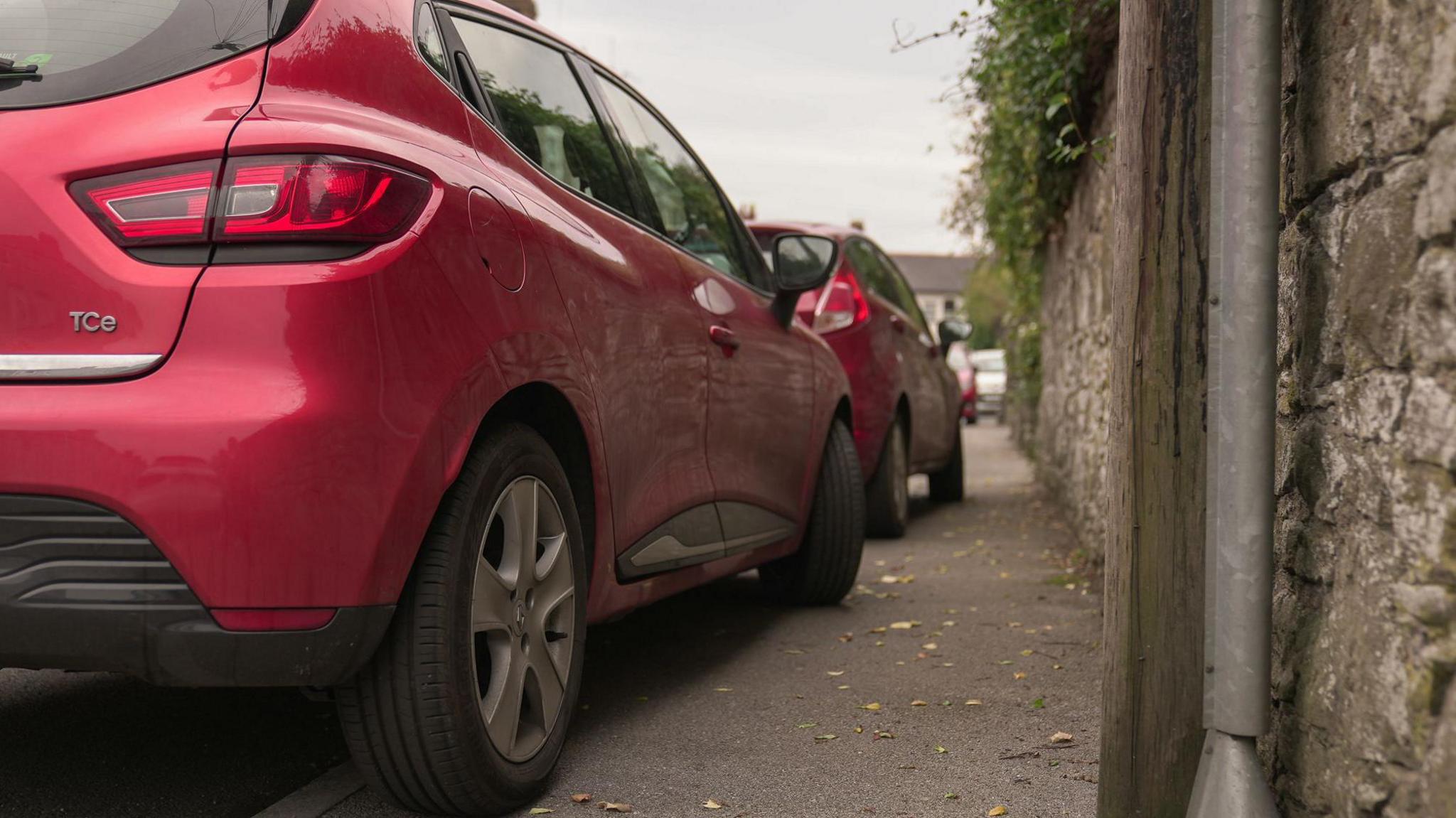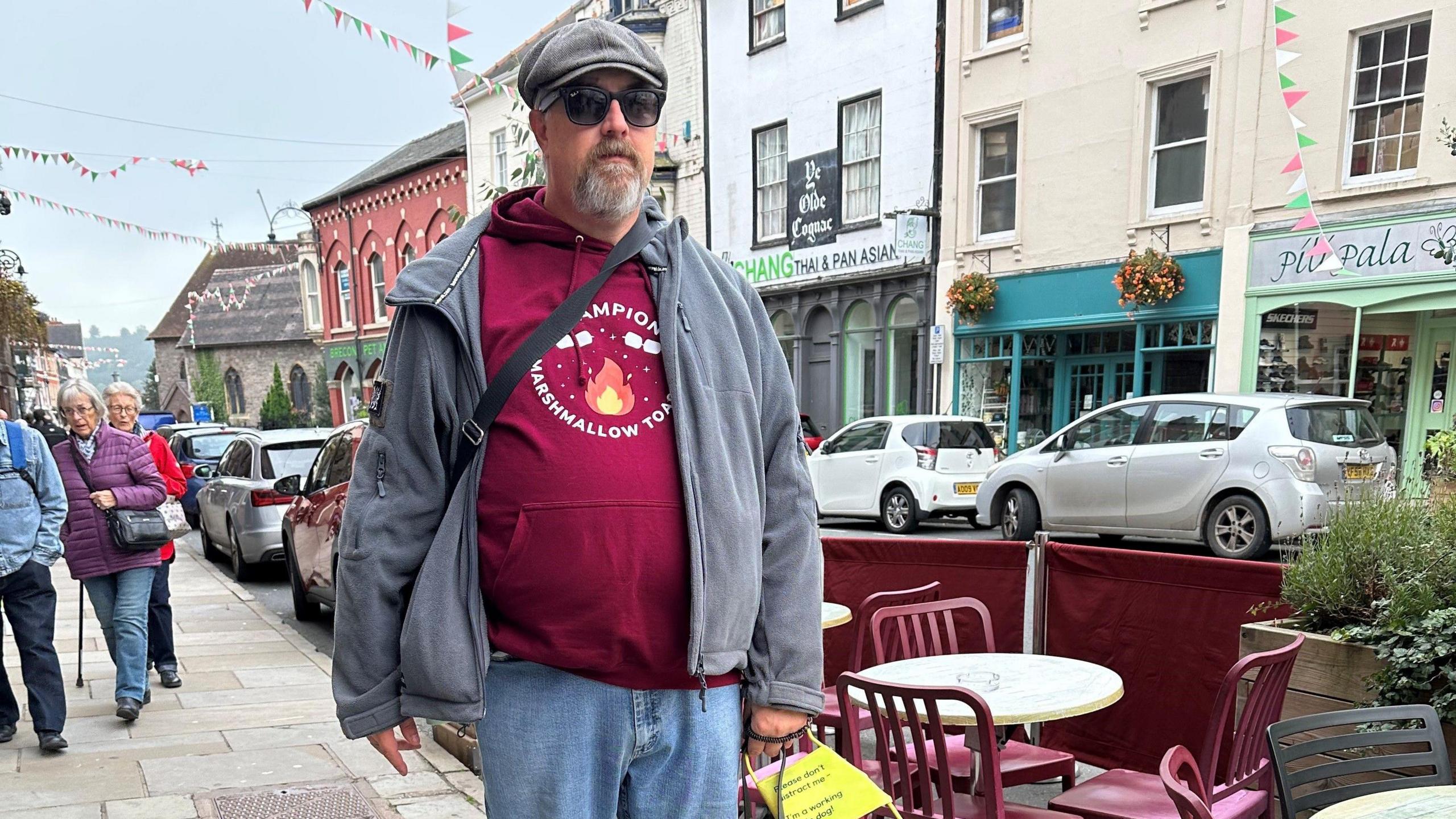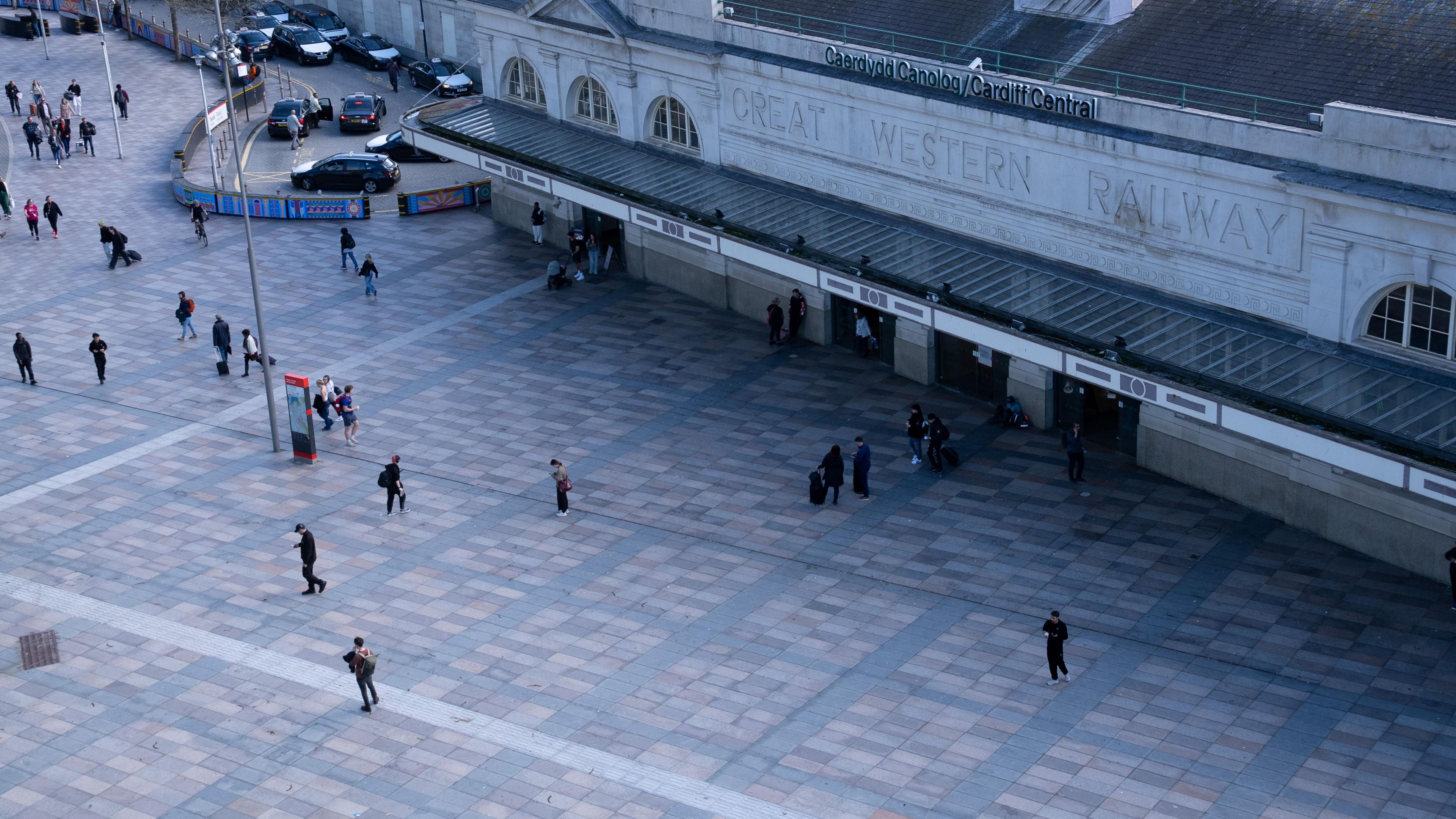Pavement parkers blamed for 'no safe place to walk' as ban urged
The charity Guide Dogs UK is calling for the banning of pavement parking across the UK
- Published
Pavement parking is making the streets "increasingly hostile" and leaving people with "no safe place to walk", according to Guide Dogs UK.
The charity wants Wales to follow Scotland and London in banning parking on pavements, pointing to a YouGov poll of 615 councillors where nearly three quarters supported the move.
The Welsh government delayed its plans for a ban in 2023, but the transport secretary said he was "committed to making streets safer and more accessible".
Mum Daisy Owen, from Cardiff, said pavement parking forced her to step into the road with her baby.
"People think they're just quickly popping in for something, but that could risk mine and [my daughter's] safety," she said.
SUV drivers could pay more under parking plan
- Published27 November 2024
'I lost part of my garden to a £2bn road'
- Published12 June
Parking warning at beach after vehicles submerged
- Published21 June
Andrea Gordon, from Guide Dogs UK, said quiet electric vehicles were compounding the problem.
"When I'm trying to work out if it is safe to step out around a car it's almost impossible to hear the car anyway so you literally have to take a chance," she said.
The Welsh government was preparing to give councils the power to fine pavement parkers £70 in 2023, but it was delayed because of the pressure local authorities were under to implement 20mph speed limits in urban areas.
Ms Gordon said she was "disappointed" ministers had not taken up the issue again after her group helped to develop guidance for local authorities.
"Sadly that has not progressed, and in the meantime the situation on our pavements becomes increasingly hostile for blind and partially sighted people with the presence of e-scooters becoming a particular problem.
"Very often there is no safe place to walk."

Charity Guide Dogs UK wants the UK to follow Scotland and London in banning pavement parking
In Cardiff, residents told BBC News they wanted drivers to be considerate when parking.
Dave Dolton said: "Sometimes its dangerous, they just park anywhere. They need to learn a bit more - get a better education on the highway code."
"I don't approve of it but sometimes there is no alternative for people," said Angela, who felt bins and recycling bags compounded the problem.
Hamish Cox said the narrow streets were not designed for people to park on pavements.
"Daily I see parents with pushchairs, people with wheelchairs, people who are visually impaired walking down the middle of the road," he said.

Mr Lancaster says it is stressful not knowing where or when he is going to come across a blocked pavement
Nick Lancaster, who is partially blind, said he had missed medical appointments, buses and struggles to go food shopping because of cars parking on pavements.
"It is stressful not knowing where or when I am going to come across a blocked pavement, and if I can get around it or have to backtrack and use an alternative route," said Mr Lancaster, 47, from Brecon in Powys.
"If a road is busy I can't see the traffic, my guide dog Benje, as big as he is, he can't see over cars," he told BBC Radio Wales Breakfast.
"This leads to me missing buses, medical appointments or even just not being able to do some food shopping."
Mr Lancaster said his dog Benje did a "brilliant job" but could only do so much.
"He can't see if it's safe for me to go around [a car parked on the pavement] just as I can't tell from just listening to traffic all the time, especially if the car is an electric car.
"If I can't find an alternative route I just have to go home and not make the journey I'm making," he said.
Transport Secretary Ken Skates said his government recognised that pavement parking was a real concern, particularly for disabled people, parents with pushchairs and older residents.
"We're committed to making our streets safer and more accessible, working with councils and our access and inclusion panel to remove barriers to travel," said Mr Skates.
"That's why we established a new disabled people's inclusive travel panel to help inform our policies, and invested £45m to help councils improve routes with measures like dropped kerbs, wider footways and safer crossings."
With additional reporting by Greg Davies.
More top stories
- Published10 October

- Published10 October

